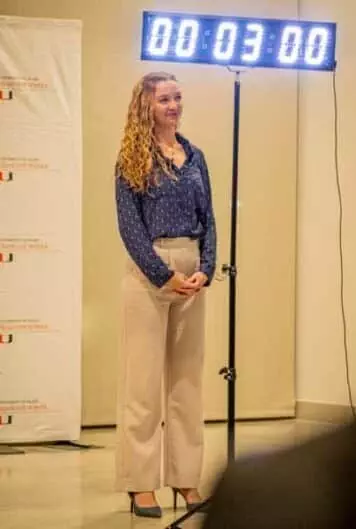Newcomers in science research often get carried away expecting every day to be about performing experiments and celebrating big discoveries. The reality can be jarring at-times, as Chloe Kirk, a STEM influencer and PhD candidate at the University of Miami, notes.
Chloe sat down with us and highlighted some parts of research and lab that first-year students, herself included, often don’t realize come with the territory of being a scientist.

It Is Not Only About Experiments
Sharing her experience, Chloe talks about how life in the lab is not only between pipettes and petri dishes. Along with experiments comes the very important part of collecting data and images, analyzing them, and organizing them in a presentable way to fellow scientists.
There’s More to Science than “Your” Research
Talking about this multiple times on her Instagram page, Chloe urges the new research scientists to stay up-to-date with the previous and ongoing work in their area of research. This will help them develop a vision that adds to already existing research and supports your research.
The First Shot May Not Always Be A Bull’s Eye
Speaking from a place of experience, Chloe recalled a time when the research she initially worked on in graduate school failed and she had to switch projects. After months of hard work, she had to re-plan, re-structure and prepare mentally for a different research topic and experimentation. Chloe advises new students to be prepared for such mishaps. The whole idea is to stay true to your passion for research and maintain focus, regardless of any hurdles that may be an inevitable part of the journey.
Don’t Try to do Everything at Once
Planning is Chloe’s number one tip when asked about life in the lab. But a counterpoint she mentions here is that newcomers tend to stretch and adjust the maximum number of experiments in a day, leaving no room for data collection and analysis. So it is better to keep in mind the data analysis part and leave room for it in the to-do list.
You Have To Take Exams
Certainly, not how passionate experimenters would want it to be, but when there are subjects to study in graduate school, you also have to take exams and get graded. It is not how Chloe thought it would be either, but she braces the newcomers to stay on top of the study sessions and exam preparations.
There’s A Lot To Learn
Becoming a PhD candidate is a big achievement in itself and shows that you are well-versed in your subject, but Chloe shares how life in a lab is a whole new experience. It comes through lots of trial and error and inevitable mistakes. She encourages the new candidates to never stop learning!
Life in the lab is much more than just experiments, and Chloe regularly shares the behind-the-scenes scoop, showing that research has its highs and lows. For more insights head to Chloe’s Instagram Blog.


